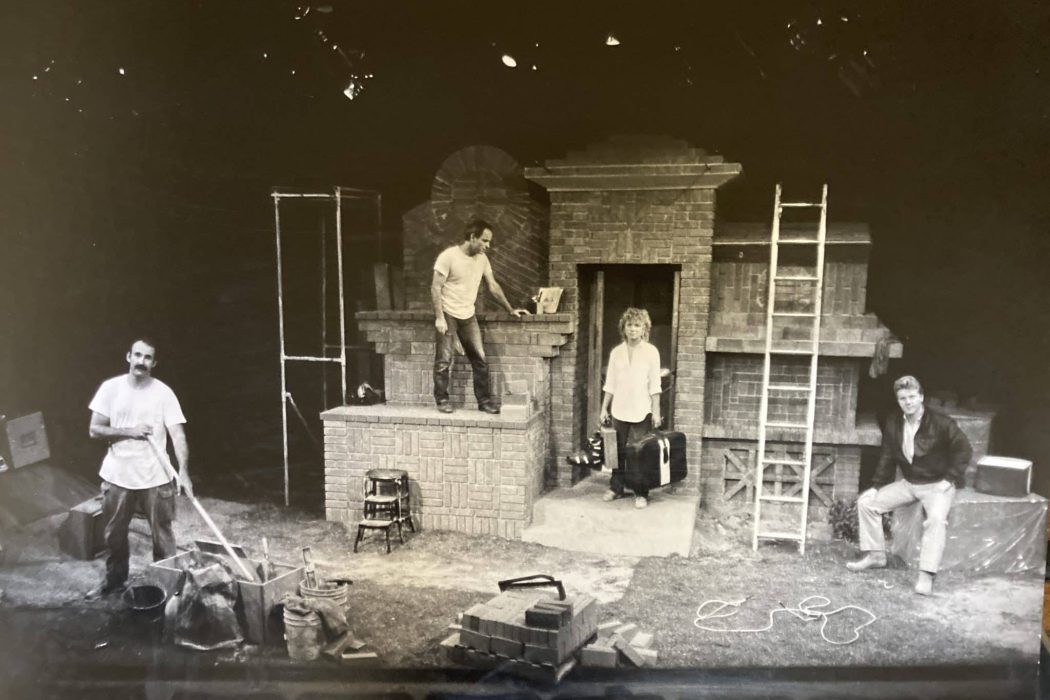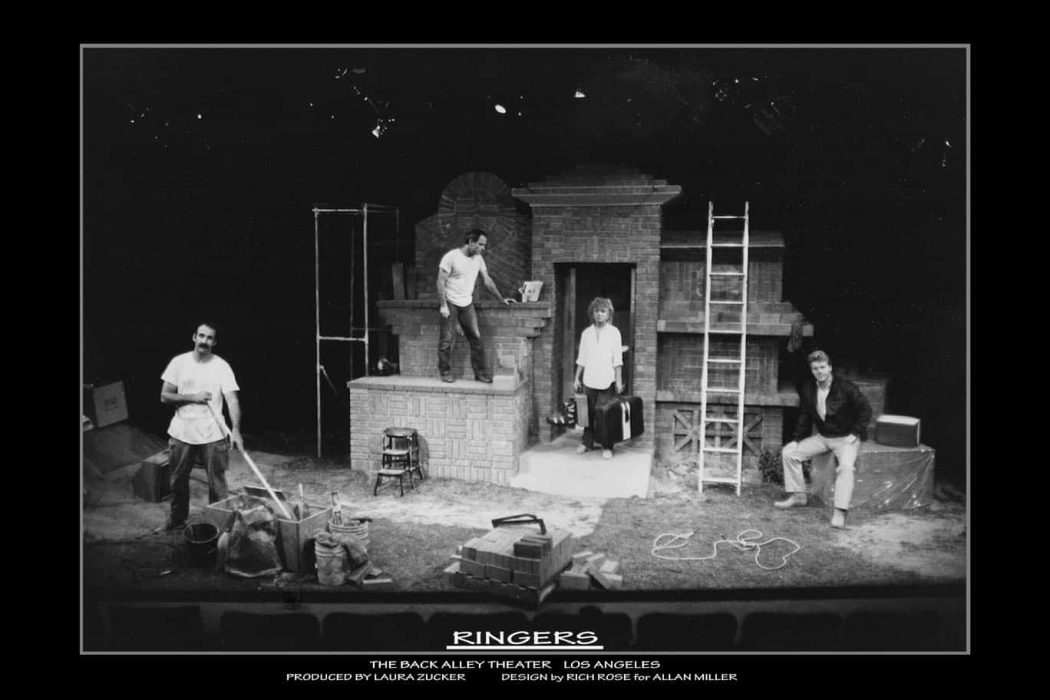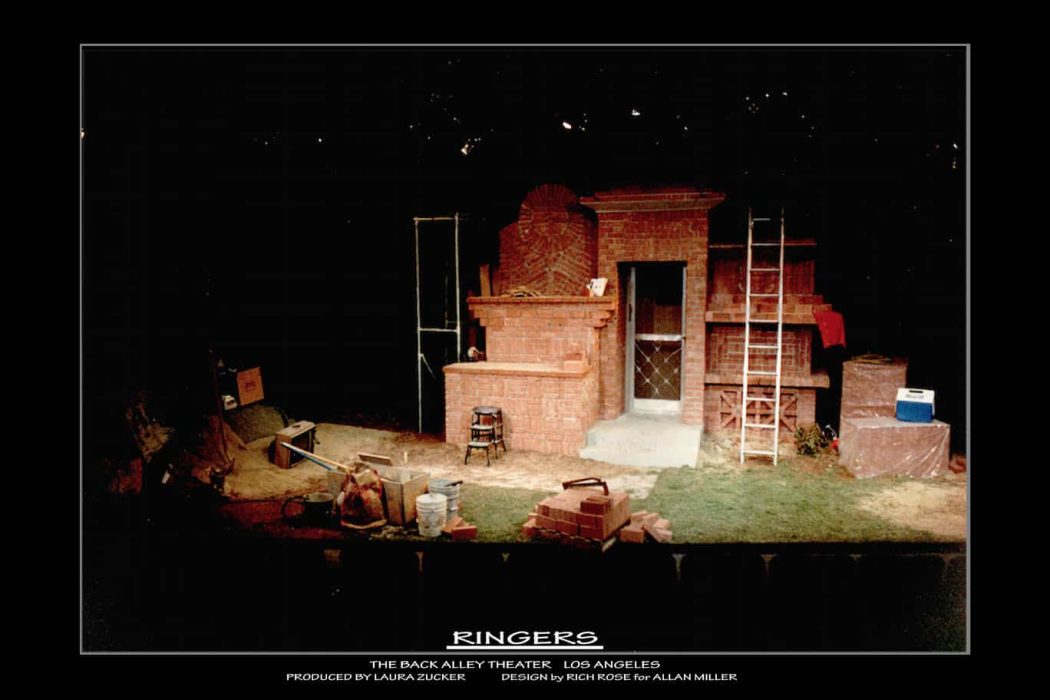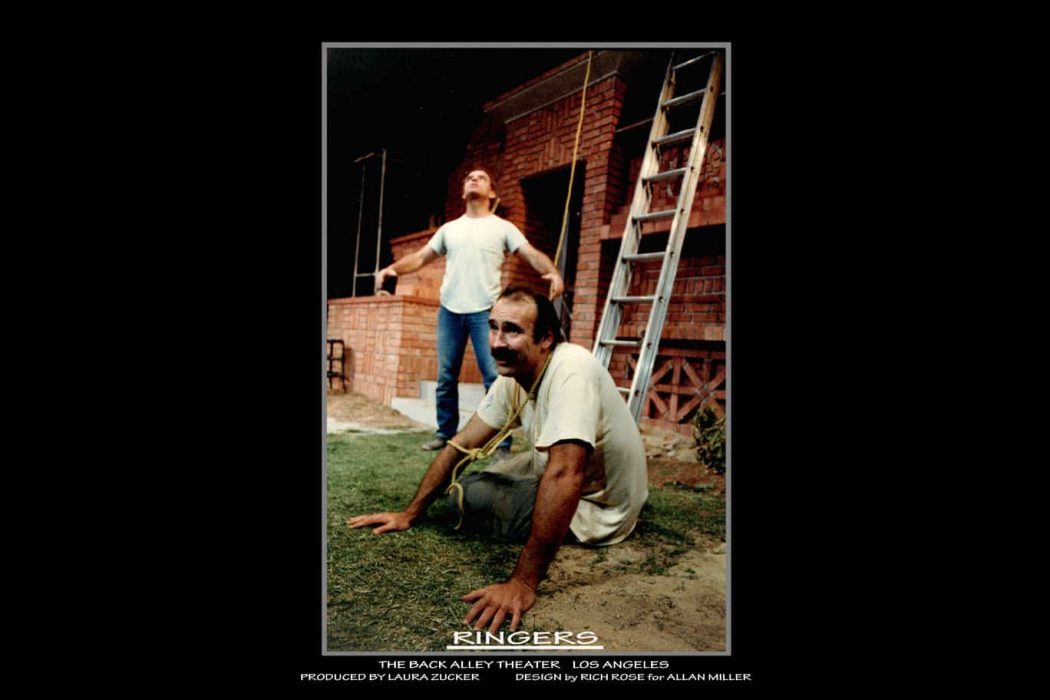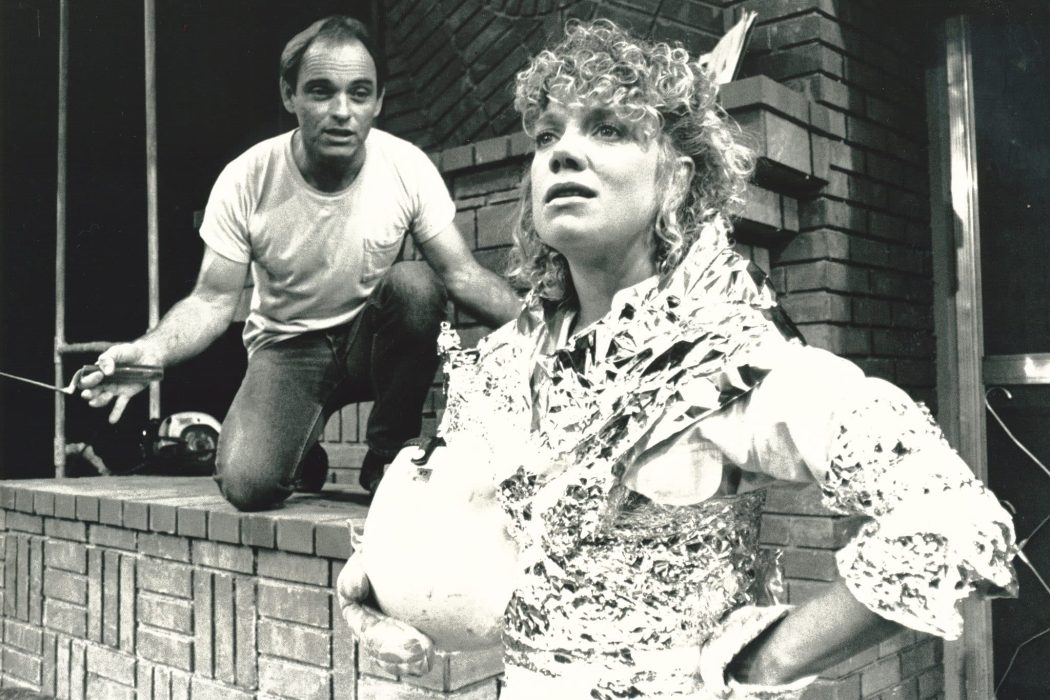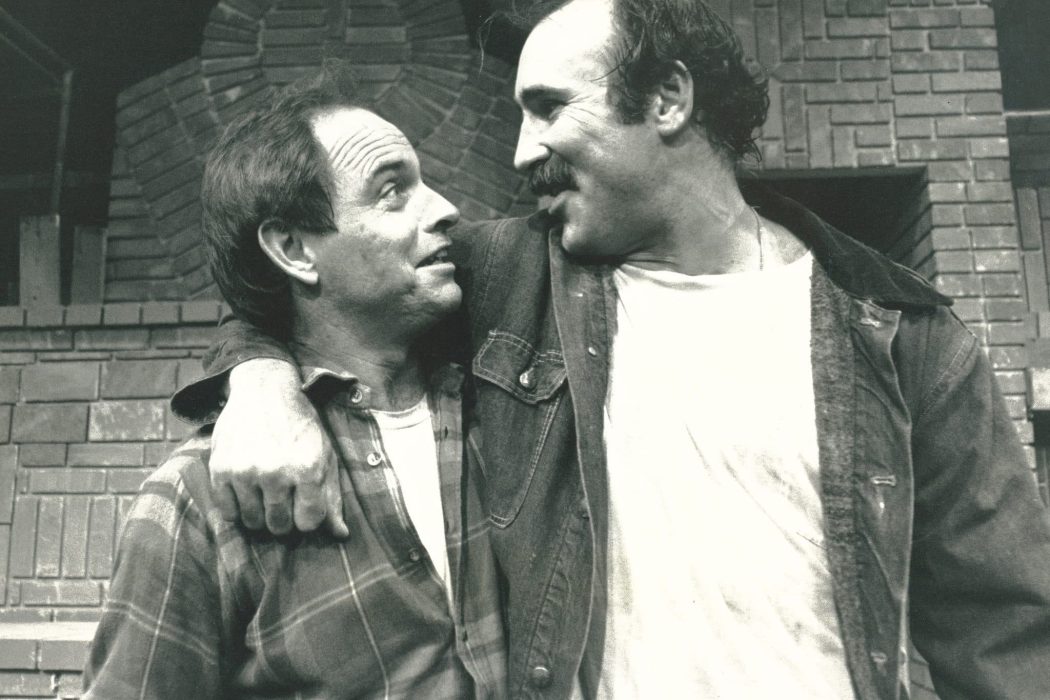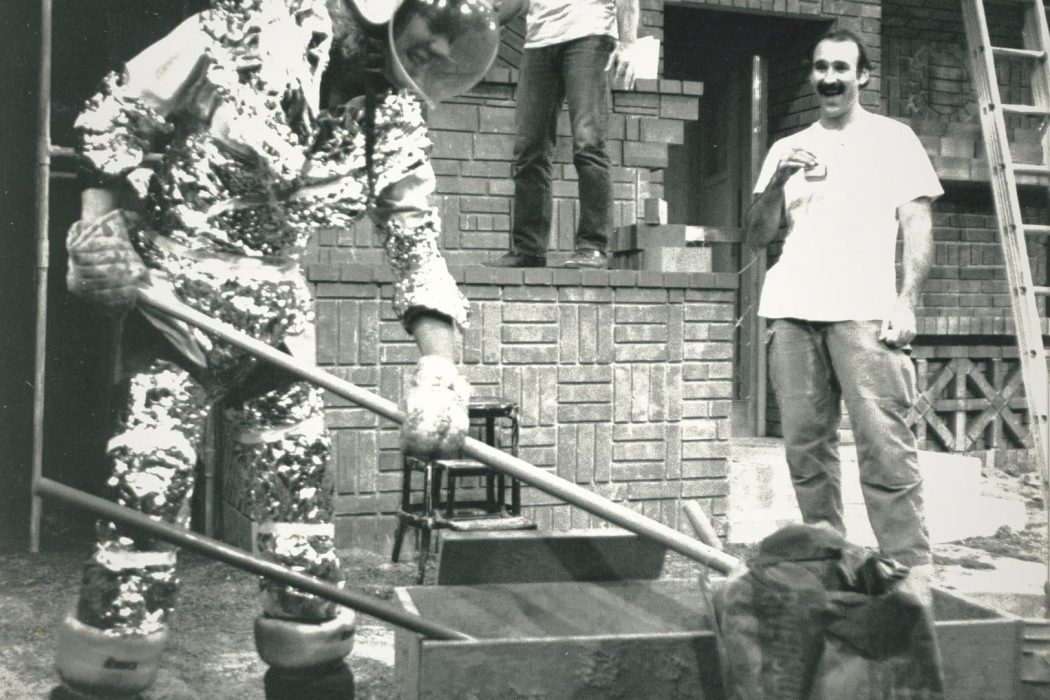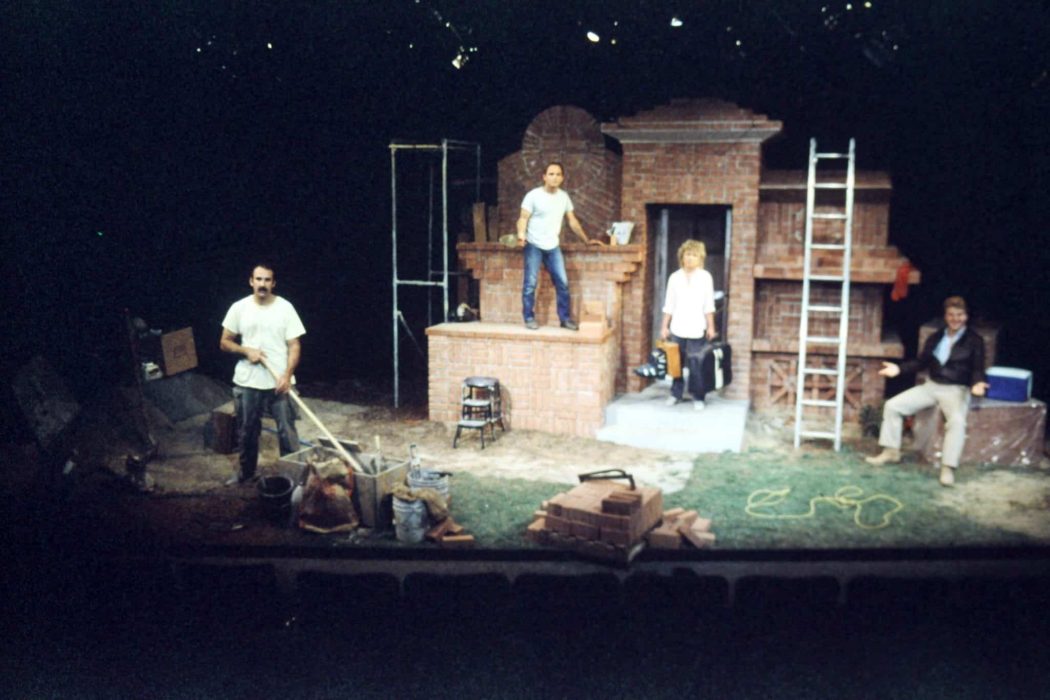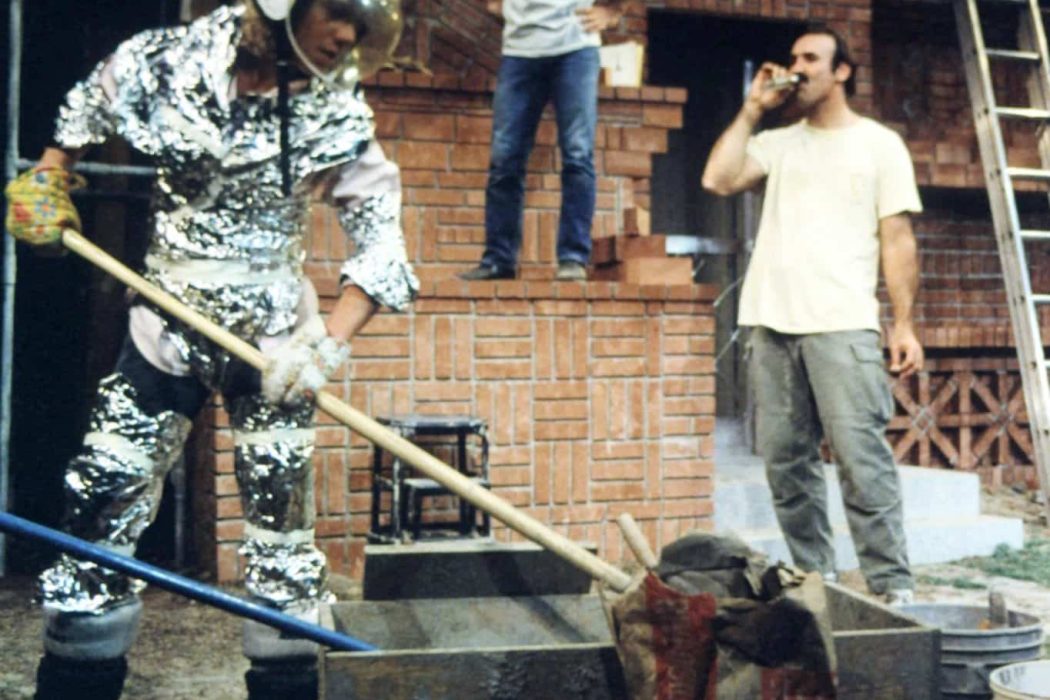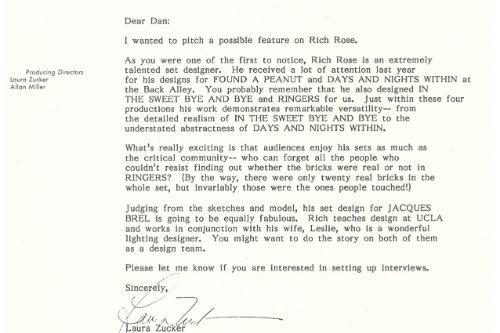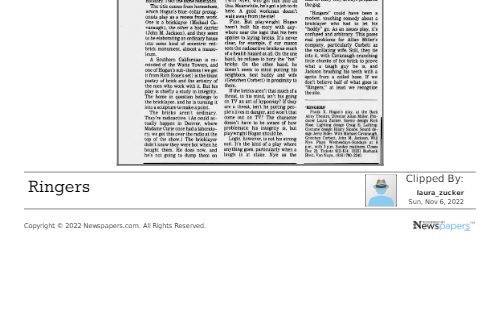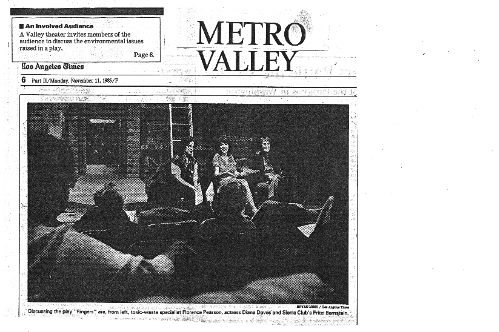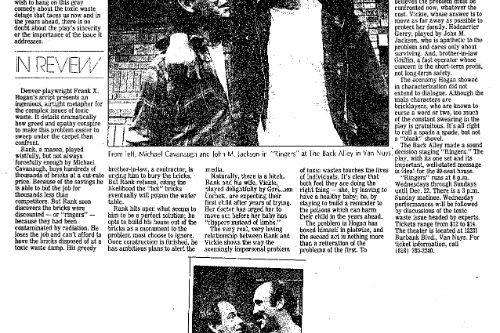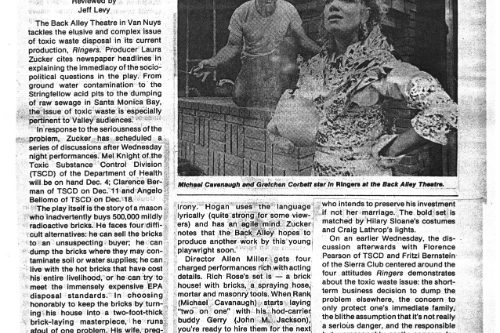Introduction
The file for our first production of 1985, RINGERS by Frank X. Hogan, has disappeared. Unfortunately, the issue it tackled, the illegal dumping of toxic waste, is still with us. In 2023, we’re just now finding out about the extraordinary dumping that was done in the ocean off Catalina, for example. Issue plays can stimulate important discussions, but are not easy to pull off.’
RINGERS, set in Denver, focused on a mason’s dilemma about what he should do with a large number of radioactive bricks he had inadvertently bought. Out of frustration he decides to build himself a fantastical house, what Dan Sullivan in the LA Times called, “an eccentric red-brick monument, almost a mausoleum.” Dan went on to say that the “play is chiefly a study in integrity.” Now that the bricklayer knows that the bricks are hot, he’s not going to dump them on someone else as they were dumped on him.
This production began our association with Rich Rose as our resident scenic designer. Rich went on to teach for many years at The UCLA School of Theatre, Film and Television, has written books about computer aided design and is now professor emeritus. [Side note: When we were figuring out how to best rebuild the stage at The Ford Amphitheatre 25 years later, he was the first person I called.]
The great ensemble cast, directed by Allan, was Michael Cavanaugh, Gretchen Corbett, John Jackson, and Will Nye. Michael and John apprenticed with a bricklayer to authentically build part of the set on stage every night.
We held audience forums every week to explore the environmental issues the play raised. The program’s cover featured a collage of stories and headlines on news events from that time in the Valley, including “13 Area Firms Hit with Air Pollution Penalties,” “2 Charged with Illegal Storage of Explosives in Northridge Shop,” and “Scores Hurt by Leaking Chemicals.” One week, for example, we had Fritzi Bernstein, solid-waste chairman of the Sierra Club’s Southern California Regional Conservation Committee, and Florence Pearson, a state waste management specialist. An article in the LA Times which covered the forum, reported that one theatre-goer said, “The issue is a very serious one, very important, but the play was totally unrealistic,” while another audience member countered, “People are like that,” referring to the characters on stage, “I know people like that.”
Nothing made me happier that when audience members argued all the way home.
–Laura Zucker


